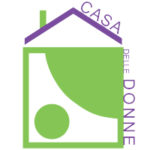A ‘sister’, a white orphan, a strange disease: lives suspended in the story ‘Nadia, from the east’ by Cettina Callea. Italy, 2020.
I meet her twice a day, in the morning while I’m in my car, in the evening when she passes under my balcony, where I smoke my well-deserved cigarette. It’s been going on for a long time. Almost a year. I’ve always had the habit, since I was a child, of feeling curious about strangers and wondering about their lives. I often do that, even when I look through the window curtains and imagine, beyond the glass, a breastfeeding mom, a dad cooking or a little girl doing her homework.
There is something about her that intrigues me
The woman I’ve been encountering for almost a year is beautiful, with her blonde hair gathered in a ponytail. She may be in her thirties and she’s from the East, probably Romanian. There are so many women like her where I’m from. I don’t know what colour her eyes are because in the morning, even if it’s gray, she always wears sunglasses. And in the evenings I see her from above. There is something about her that intrigues me. She seems surrounded by a certain melancholy and a sense of loneliness.
I wanted to give her a name and I decided her name was Nadia. I know where she goes every night and I know she comes back home in the morning. Nadia goes to her old woman, day after day, and spends the whole night with her. The old lady suffers from Alzheimer and her children looked for someone who could take care of her. All of them have families and at night they can’t stay with her.
There are many women like her
Nadia is perfect for this task. She’s lonely, she’s a foreigner, she can moonlight. On the other hand, the old lady has a very meagre pension and her children are also just scraping by . Putting a professional carer in place would cost too much. There are so many women like Nadia, lucky, of course, because at least they have a job. Some look after the elderly, even for twenty-four hours, day after day, for years. And when, after ages, these kind carers go back to their hometowns with a good bunch of money, their nest-egg is no longer useful, because, it seems, they fall ill with a terrible disease that has been called “Italian syndrome” – the crushing psychological, and even physical impact of the stress and abuse they so often suffer, for so long, as caregivers.
She has a sweet voice
I’m imagining Nadia at the old lady’s house. Now she’s setting the table, while a parsnip is boiling in the saucepan. The old lady is following Nadia with her gaze, as she is performing, as usual, her evening ritual.
She’s turning off the heat, pouring a ladle of steaming broth into a dish and then adds a drizzle of oil. She’s sitting the old lady down as if she were a little girl and is starting to talk to her. Nadia has a sweet voice while feeding her. She does it well, she seems trained, accustomed to this maternal practice.
She was in charge of correspondence
Yes, that’s it. Nadia is a mother, but she had to leave her daughter. The girl is staying with Nadia’s sister and studying in her home country. Nadia had to leave her because she couldn’t get by there. The company she had worked for went bankrupt, and then she couldn’t find another job. Even there, in her country, if you’re more than thirty years old it’s not easy to find a good job. She was in charge of correspondence and knew Italian very well. That’s why Italy was the perfect place for her. Her friend Dora would have hosted her. Sharing a two-bedroom apartment would have been convenient for two single women, foreigners, without a stable job.
There is something that makes me feel close to her, almost like a ‘sister’
I don’t know anything about her, except what I ‘ve tried to imagine, but there’s something that makes me feel close to her or, better yet, almost like a “sister.” Perhaps because I’m a mother too and I feel her silent pain at her daughter’s distance, pain for what both are losing from each other. I also imagine her daughter, one of the many white orphans scattered in the most remote corners of the earth. This will surely be the main reason for Nadia’s melancholy appearance. I know how hard it is to communicate with a teenager. Sometimes there are insuperable walls and a cold video call is not enough to cross them, especially when, more than sounds and images, hugs and caresses are needed above all.
I smile at her and ask her “Coffee?“
I imagine Nadia. Now she’s putting the old lady’s diaper on. Before now, she had only done it with her little daughter and nieces and nephews. She gently handles the old lady, who has a soft body, a drooping skin, and an acrid smell. Luckily the lady is compliant and doesn’t rebel against Nadia. Never. She obeys her instructions, even though the ‘beast’ who attacked her mind deprived her of memories, thought and dignity.
I’m going to have to be at work later this morning, but I’m going to go out at the usual time. I stop at the cafè and I go in. I order my ‘macchiato’ at the counter, when a “good morning” interrupts my waiting. I turn my head and it’s her. The young woman I call Nadia, whose life I have imagined so many times. I smile at her and ask her, “Coffee?.” She glances back at me with a smile, nods and thanks me, moves her glasses over her head. Her eyes are big, dark and a little sad.
“We will definitely meet again”
We exchange a few words, she tells me she has few friends, but that she doesn’t really have time for friends. She also works in the afternoon. She cleans two offices, because she has to earn as much as possible to let her daughter to study in Romania with her sister. We depart from each other with a handshake. “Surely we’ll see each other again. I often pass here,” she says, “but, next time, it’s on me!”
…
This short story was translated by Cettina Callea and reviewed by Syd Stapleton
Cettina Callea is from Licata (Italy), she’s an English language teacher, she loves to travel, read and write. She loves Sicily, its culture and its cuisine. She is a staunch supporter of gender equality. She’s part of the theater company ‘Il Dilemma‘.
You can send your story here








